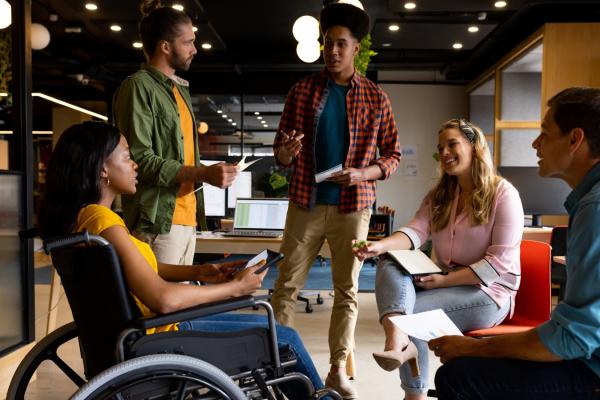Problem addressed
In rural Lithuania, children from low-income families, single-parent households, Roma communities, and other socially excluded groups often lack real opportunities to influence decisions that affect their lives. While participation is a recognized right, in practice, it is rarely implemented meaningfully — especially outside formal education settings. Most community organizations do not have structures for children’s voices to shape services or programs, and children are often seen as passive recipients rather than active contributors.
Debesų kiemas, a community-based organization rather than a school, works directly with vulnerable children in non-formal settings. This creates a unique opportunity to “play democracy” in everyday life — allowing children to experiment, express themselves, and gradually take on real responsibility. However, without a structured model, children’s ideas and insights risk being overlooked.
This project addresses the lack of inclusive, everyday democratic practice in child-focused services by embedding a genuine, child-led participation system. It ensures that children from diverse backgrounds can regularly engage in decision-making and experience what it means to be heard, respected, and empowered in their own community.
Innovative solution
Children’s Agora: Voices in Action introduces an innovative, child-led governance model within Debesų kiemas, where children aged 7 to 18 actively participate in shaping the organization’s decisions and services. While participation is often limited to older youth, this project intentionally includes younger children — starting from age 7 — based on the belief that democratic habits and civic confidence must be nurtured from an early age. Early involvement helps build a lasting sense of agency, responsibility, and belonging.
The innovation lies in integrating real decision-making power into a non-formal, community-based setting rather than a school. Children are engaged not through simulations or one-off consultations, but through a structured and recurring model — the Children’s Agora, a rotating council that meets regularly to identify issues, propose solutions, and influence how Debesų kiemas operates.
This approach transforms the traditional adult-child dynamic by treating children as equal contributors. It’s not symbolic; it’s systemic. It creates a replicable model for how grassroots organizations can embed democratic practice into daily work, even with the youngest and most vulnerable members of society.
The solution is inclusive, practical, and scalable — and it redefines what meaningful child participation can look like in real life.
Key results and benefits
Established Children’s Agora – a functioning, child-led advisory council involving children aged 7–18 from diverse social and economic backgrounds, meeting regularly and influencing real decisions at Debesų kiemas.
Active participation from underrepresented groups – children from low-income families, Roma communities, single-parent households, and rural areas will gain a platform to express their views and shape services.
Strengthened civic and leadership skills – children will develop communication, critical thinking, responsibility, and confidence through hands-on experience in democratic processes.
Organizational transformation – Debesų kiemas will embed a sustainable participation model into its governance structure, making child input a core part of planning, evaluation, and innovation.
Cultural shift toward inclusion – both children and adults will experience a change in roles and relationships, promoting mutual respect, accountability, and trust.
Replicable model – the project will generate tools, methods, and insights that can inspire similar practices in other non-formal education and social service settings across Lithuania and beyond.
Long-term empowerment – by starting from age 7, the project cultivates lifelong habits of civic engagement, creating a generation of young people who know their voice matters.
Potential for mainstreaming
Children’s Agora: Voices in Action offers a scalable and adaptable model of child participation that can be mainstreamed across community-based organizations, youth centers, and social services in Lithuania and beyond. Its strength lies in its simplicity, flexibility, and direct impact — it can be integrated into both small local initiatives and larger institutional frameworks without requiring significant financial or structural changes.
By developing clear methodologies, facilitation tools, and participatory templates suitable for children aged 7–18, the project creates a replicable system that promotes early democratic habits and inclusive decision-making. The model is especially relevant for rural or marginalized communities, where children’s voices are often unheard.
Debesų kiemas, as a non-formal, non-school setting, demonstrates that children’s participation can thrive outside traditional education structures. This opens the door for other NGOs, municipalities, and social service providers to adopt similar approaches.
Through documentation, dissemination, and capacity-building workshops, the project will actively share its results with other actors in the field. It aligns with national and European priorities on child rights, civic engagement, and social inclusion — making it a timely and transferable solution for wider systemic impact.




